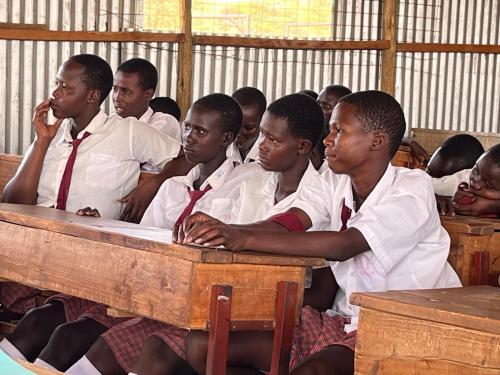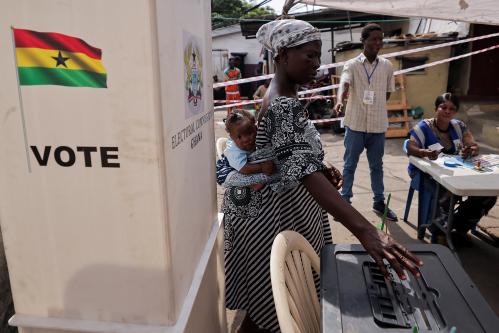Elections in Nigeria and Senegal
On Wednesday, officials announced the results of the Nigerian presidential elections, which took place on Saturday, February 23, with Muhammadu Buhari winning a second term over the opposition leader Atiku Abubakar. The election was originally scheduled for February 16, but were delayed by the election commission that cited challenges like the over-distribution of voting materials, the burning of election materials in alleged acts of sabotage, and inclement weather restricting the delivery of voting materials to some locations. The delay sparked widespread doubts in the integrity of the poll with accusations that the ruling partying had influenced the commission’s decision to gain an advantage by reducing voter turnout.
While election observers have said there were no major disruptions, there were reports of sporadic violence and at least 39 people were killed the day of the poll. However, Abubakar has not yet conceded, declaring the election a “sham” because of numerous inconsistencies, violence at the polls, and “militarization of the electoral process.” He has stated that he plans to contest the outcome in court. (For more analysis on the Nigerian presidential election, see John Mukum Mbaku’s blog post.)
Presidential elections were also held in Senegal on Sunday, February 24. According to preliminary poll results on Thursday, President Macky Sall has won 58 percent of the votes—clearing the path for a second term—against his four opponents, including Idrissa Seck, a former prime minister who came in second with 21 percent. While the opposition leaders have rejected the results, they have stated that they will not contest the results in court.
Election observers have noted that there were no irregularities in the elections, but critics have assailed President Sall for using his authority to launch investigations of his opponents, which led to some being imprisoned and others determined ineligible to run. Despite these allegations, there were no large demonstrations after Sall was declared the election’s winner.
Sudan’s President declares state of emergency
Last week, Sudanese President Omar Hassan al-Bashir declared a yearlong state of emergency and dissolved federal and state governments in response to several months of widespread protest against his rule. On December 19, protests began over rising prices and shortages of staple goods, but they have quickly transformed into protests against Bashir’s rule. At least 57 people have been killed since the protests began. State governors were replaced with officials from the military and security forces, and emergency prosecutors and courts were also established nationwide.
Following the announcement of the state of emergency, Bashir banned unlicensed public gatherings and awarded new powers to security forces including the power to search any building, restrict movement of people and public transport, arrest individuals suspected of crimes related to the state of emergency, and seize assets and property during investigations. But Bashir also described the demands of protestors as “legitimate,” and suspended his efforts to amend Sudan’s constitution to allow him to run for a third term of office when his current term ends in 2020. Demonstrations have continued this week despite the state of emergency and show few signs of abating.
On Friday, al-Bashir stepped down from his position as head of the National Congress Party. A party statement said that al-Bashir delegated his powers as chairman of the party to its deputy chairman, Ahmed Harun, until the party’s next general conference. Harun was quoted by local media as saying al-Bashir wanted to “devote himself to the national tasks” as the country’s leader.
Salary delays at Namibian state-owned enterprises
This week, several Namibian state-owned enterprises delayed employee salaries as the government faces budget challenges. According to reports, salary delays have become more frequent in recent months, with employees at Air Namibia, the Roads Authority, and Namibia Institute of Mining and Technology affected. These challenges are part of a broader economic downturn as GDP has contracted for 10 straight quarters and growth in 2019 is projected to be under 1 percent.
Last week, credit rating agency Fitch changed its outlook on Namibia from stable to negative citing persistent weak growth. In its announcement, Fitch noted that growth will pick up at the end of 2019 and continue to gain momentum through 2020, driven by growth in the mining industry. According to Klaus Schade, an economic analyst and director of the Economic Association of Namibia, with government debt already at 45 percent of GDP, the next annual budget to be released on March 13 will need to address the budget deficit and an unsustainable public sector wage bill.
The Brookings Institution is committed to quality, independence, and impact.
We are supported by a diverse array of funders. In line with our values and policies, each Brookings publication represents the sole views of its author(s).





Commentary
Africa in the news: Nigeria and Senegal election results, state of emergency in Sudan, and salary delays in Namibia
March 2, 2019